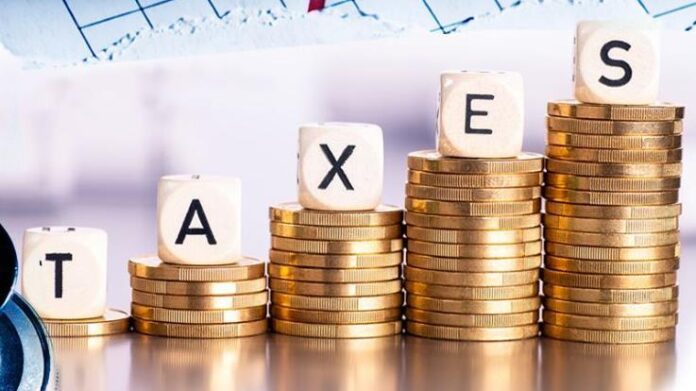Indirect taxes fetch treasury N2tr, a rise of nearly 17%
By Jeph Ajobaju, Chief Copy Editor
Nigerians’ tax burden rose by N285.13 billion to N2.01 trillion in indirect taxes in the first nine months of the year (9M 2022), a 16.57 per cent hike on N1.72 trillion in 9M 2021, according to the National Bureau of Statistics (NBS).
Calculated on current basic prices, indirect taxes are taxes such as value-added taxes (VAT), customs or import duties paid by a producer and passed on to the consumer.
NBS data show Gross Domestic Product (GDP) grew 2.25 per cent year-on-year (YoY) in real terms in the third quarter (Q3 2022), a 4.03 per cent decline on Q3 2021 caused by recession base effects and productivity headwinds.
Abuja had been raising taxes long before its 2023-2035 Medium Term Expenditure Framework and Fiscal Strategy Paper, because of poor revenue generation.
“These measures include improving the tax administration framework, including tax filing and payment; as well as introduction of new and/or further increases in existing pro-heath taxes like excise on sugar sweetened beverages, tobacco, and alcohol. Mixed reactions have greeted the implementation of these measures,” the paper said.
__________________________________________________________________
Related articles:
NEITI helps recover N2.6tr tax from oil firms
Phone VAT fetches N127b revenue for treasury
Oil money losses can fund Buhari’s projects without loans
__________________________________________________________________
Stepping up tax administration reform
The International Monetary Fund (IMF) has urged Nigeria to step up tax administration reform, expand tax coverage under a well-designed roadmap, and strengthen taxpayer segmentation, according to reporting by The PUNCH.
It wants the government to increase VAT 100 per cent from 7.5 per cent to 15 per cent by 2027.
“The mission advised the authorities to consider adjusting tax rates to levels comparable to the average in Economic Community of West African States as compliance improves,” the IMF said in its Staff Concluding Statement of the 2022 Article IV Mission.
“This includes further increasing the VAT rate to 15 per cent by 2027 in steps while streamlining numerous VAT exemptions based on systemic reviews, increasing excise rates on alcoholic and tobacco products while broadening the base, and rationalising tax incentives by streamlining tax expenditures based on comprehensive periodic reviews.”
Associate Professor of economics at the Pan Atlantic University Olalekan Aworinde advised Abuja to ensure taxes are property invested to grow.
“What this implies is that the government is trying to expand the tax net. It is indirect taxes, probably taxes on telecoms, or it could also be on import and excise duty.
“It is good, meaning the government is trying to bring in more revenue in terms of taxes instead of relying on oil prices,” he said.
“What they need to do is to look at that avenue where they are getting this result and develop them properly so that they don’t just milk it without investing in it to grow.”




